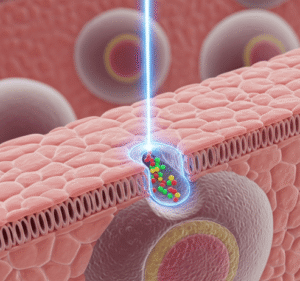Overview
Adrenal fatigue is a controversial term used to describe a collection of nonspecific symptoms such as fatigue, body aches, sleep disturbances, and digestive problems. It is believed to occur when the adrenal glands are unable to keep up with the constant demands of chronic stress. While the concept is widely discussed in alternative medicine, it is not recognized as a medical diagnosis by most mainstream healthcare organizations.
What is Adrenal Fatigue?
Adrenal fatigue refers to the idea that chronic stress overtaxes the adrenal glands, leading to a depletion of hormone production—particularly cortisol. Supporters of this theory claim that this hormonal imbalance can cause symptoms that interfere with daily life. However, in conventional medicine, the adrenal glands are only known to fail in medically recognized conditions such as Addison’s disease or adrenal insufficiency, not due to mild or moderate stress.
Symptoms
People who believe they are experiencing adrenal fatigue commonly report the following:
- Persistent fatigue, especially after sleep
- Difficulty waking up in the morning
- Craving salty or sugary foods
- Mild depression or anxiety
- Brain fog or trouble concentrating
- Decreased libido
- Increased effort to perform daily tasks
- Sleep disturbances or insomnia
- Lightheadedness when standing
Causes
In theory, adrenal fatigue is caused by chronic exposure to stress, which may be physical, emotional, or environmental. The continuous demand for cortisol is thought to wear down the adrenal glands, making them less efficient over time.
Potential stressors include:
- Long-term emotional stress (e.g., relationship issues, work pressure)
- Chronic illnesses or infections
- Poor diet and lack of sleep
- Overuse of stimulants like caffeine
- Heavy physical exertion
Risk Factors
Factors that may increase susceptibility to adrenal fatigue (if the theory holds true) include:
- Chronic psychological stress
- High-pressure jobs
- Sleep deprivation
- Poor dietary habits
- Smoking or excessive alcohol intake
- Lack of regular exercise
- Chronic medical conditions (autoimmune diseases, infections, etc.)
Complications
Because adrenal fatigue is not medically recognized, the main risks come from:
- Misdiagnosis of more serious conditions (e.g., hypothyroidism, depression, anemia, adrenal insufficiency)
- Unnecessary use of supplements or hormones without medical supervision
- Delay in receiving appropriate treatment for actual underlying health issues
Prevention
There are general wellness practices that can reduce chronic stress and improve energy levels—regardless of whether adrenal fatigue is a valid diagnosis:
- Stress management techniques such as meditation, yoga, or deep breathing
- Adequate sleep and rest
- Balanced diet rich in whole foods and nutrients
- Regular physical activity
- Limiting caffeine and alcohol intake
- Seeking counseling or support for emotional issues
Treatment Options Korea
Since adrenal fatigue is not recognized as a medical condition, there’s no official treatment protocol. However, lifestyle modifications can help alleviate the symptoms people often associate with it:
- Lifestyle Changes
- Set a consistent sleep schedule
- Practice relaxation and mindfulness techniques
- Manage stress proactively
- Nutritional Support
- Focus on a nutrient-dense diet: lean proteins, healthy fats, complex carbohydrates
- Avoid processed foods and sugar
- Stay hydrated
- Supplements (with caution)
- B vitamins, vitamin C, and magnesium are often recommended
- Adaptogenic herbs like ashwagandha or rhodiola may support stress response
- Always consult a healthcare provider before starting any supplement
- Medical Evaluation
- If symptoms persist, consult a physician to rule out adrenal insufficiency or other medical disorders













